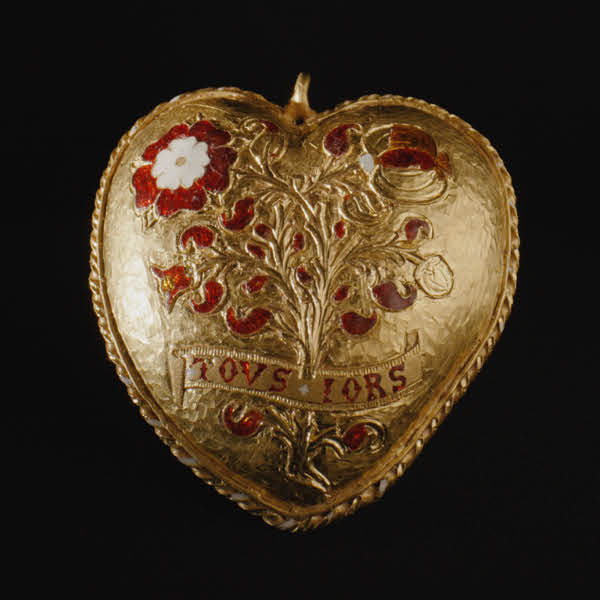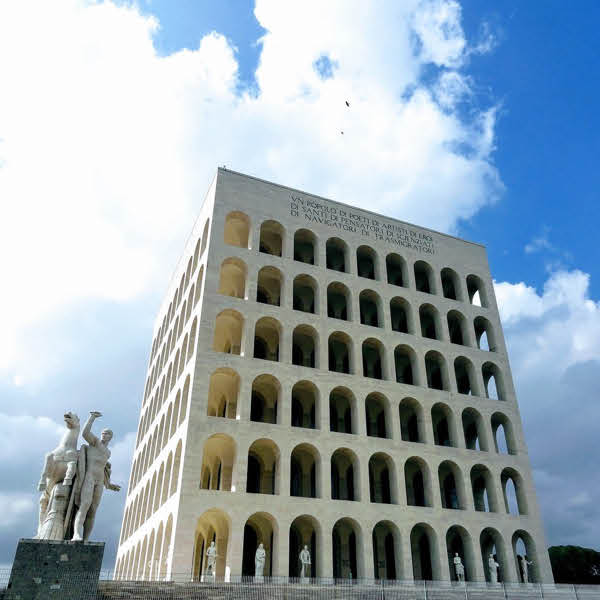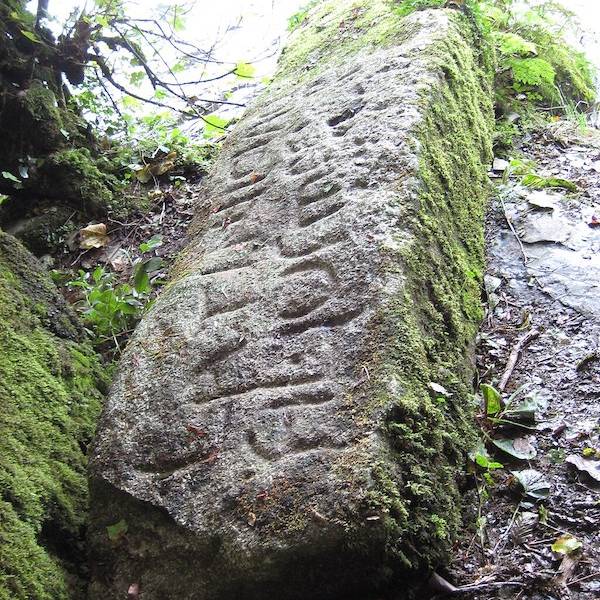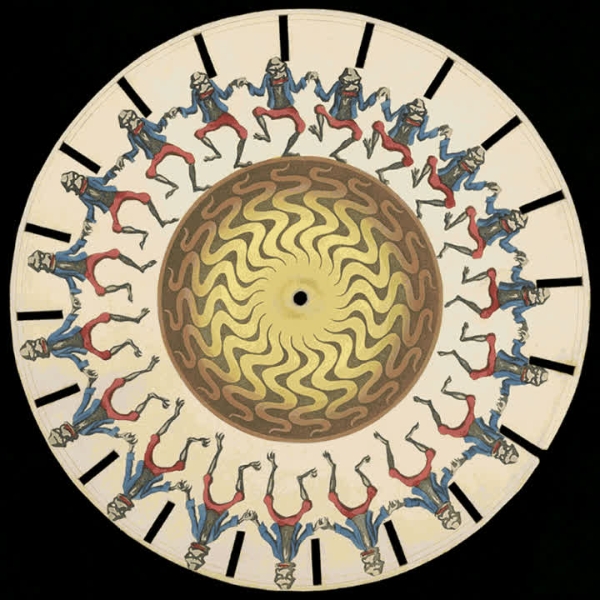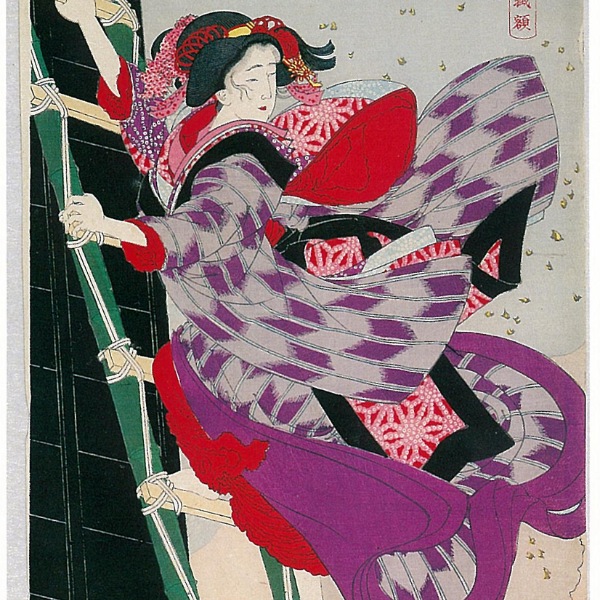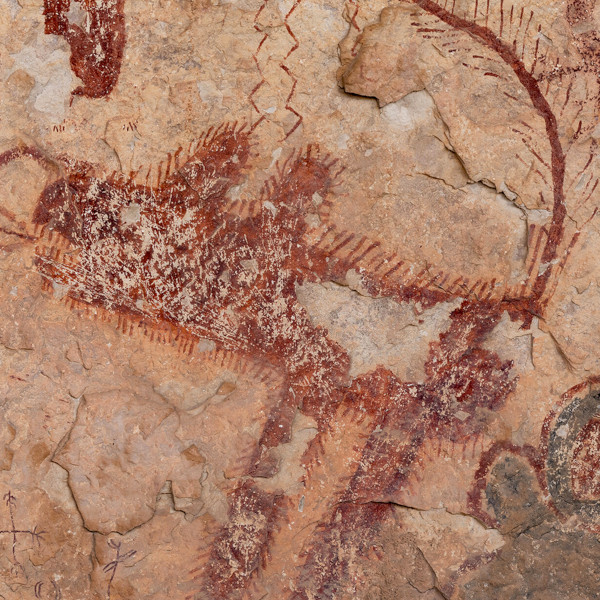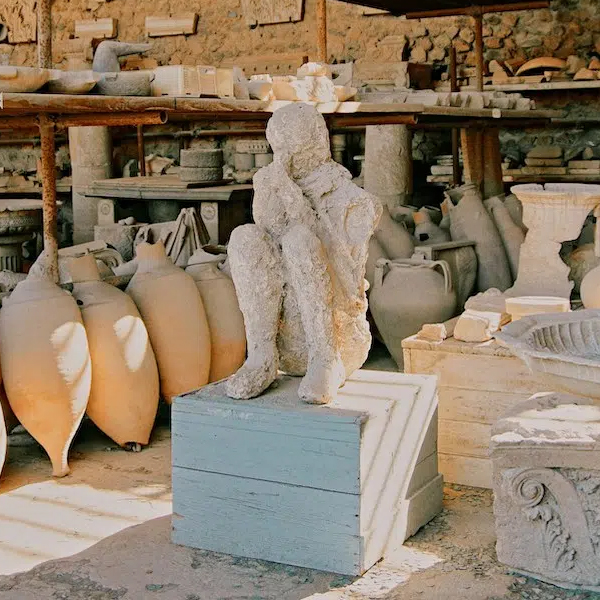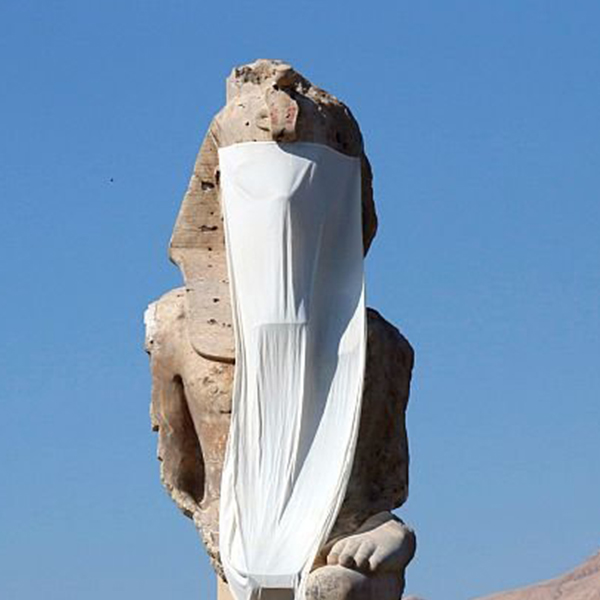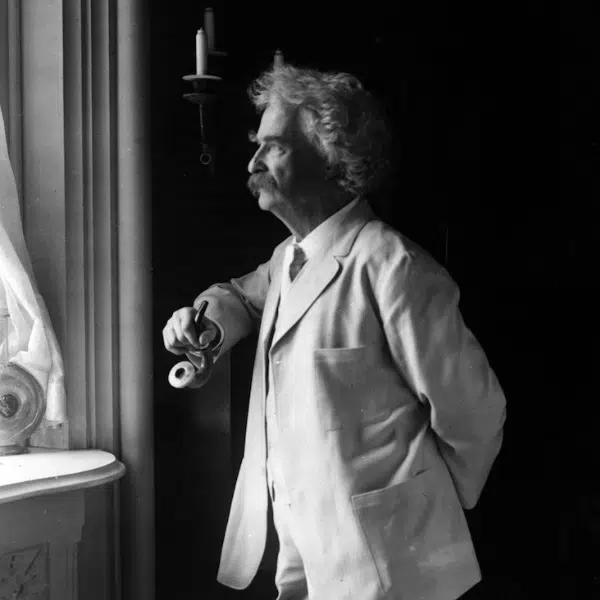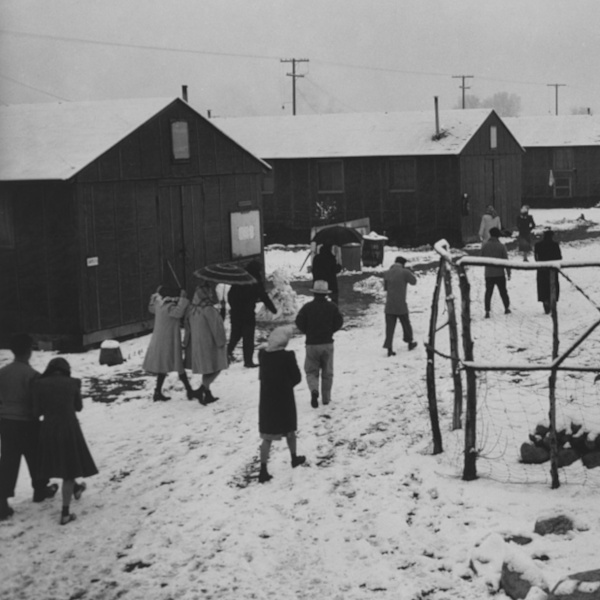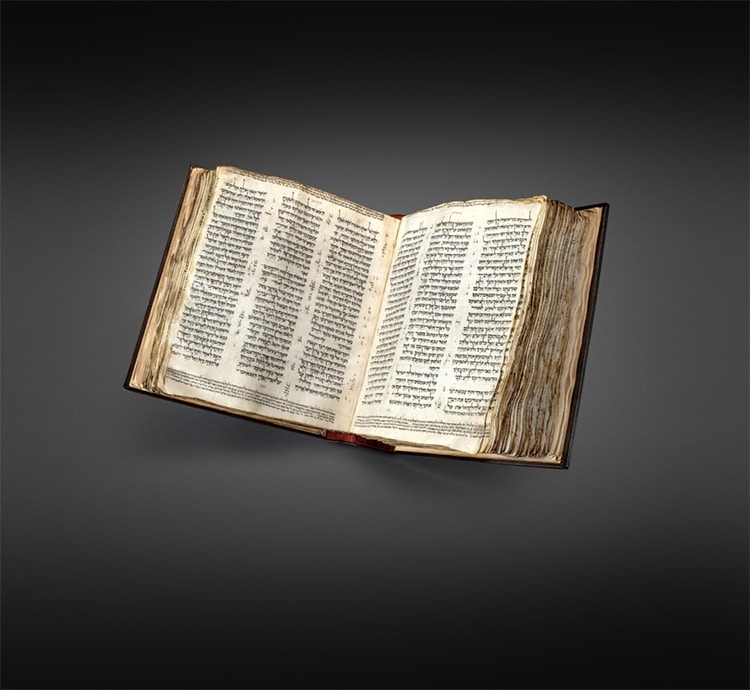
The Codex Sassoon. (Photo: Sotheby's)
The Hebrew Bible is a foundational text of human history, no matter your religion or belief in its contents. A sacred text, known as Tanakh, it comprises 24 books including the five books of Moses. Jewish, Christian, and Muslim sacred texts are either derived from or influenced by this ancient text. This incredibly special, early 10th-century manuscript is one of the most complete and ancient Bibles, explaining why it recently fetched over $38 million at auction.
The volume is known as the Codex Sassoon—named after its 1929 purchaser, David Solomon Sassoon, a collector of Jewish manuscripts. The binding is modern and carries Sassoon's crest on the interior plate. Bound within are 792 pages weighing a whopping 26 pounds. Only 12 leaves of the text are missing. Some portions of pages have been lost to time and new pieces stitched in, the text carefully recopied. Most fascinating is the marginalia, known as Masorah notes. The Masorah parva, miniscule text which was quite abbreviated, and the Masorah magna, usually at the top and bottom margins. Both types of Masorah notes were aids to scholars and scribes replicating the Tanakh by hand. These notes indicated textual features and where they were repeated throughout the volume, to ensure the preservation of the true text.
The Sassoon Codex fills an important niche in Jewish, and human, history. The Dead Sea Scrolls date at their latest to the first century CE. The Aleppo Codex—which is mentioned by the Sassoon text—was created around 930. As noted by Sotheby's, “Codex Sassoon is approximately contemporary with the aforementioned Aleppo Codex but is significantly more complete.” Given its antiquity, completeness, and pivotal early example of Masorah notation, the manuscript is an incredible piece of history.
“In Codex Sassoon, a monumental transformation in the history of the Hebrew Bible is revealed,” says Sharon Liberman Mintz, a senior Judaica specialist in Sotheby’s Books & Manuscripts Department. “The biblical text in book format marks a critical turning point in how we perceive the history of the Divine word across thousands of years and is a transformative witness to how the Hebrew Bible has influenced the pillars of civilization—art, culture, law, politics—for centuries.” In fact, the Bible itself contains notations of its passage through the hands of early owners Khalaf ben Abraham, Isaac ben Ezekiel al-Attar, and his two sons, Ezekiel and Maimon. The book eventually came to the synagogue of Makisin in what is now Syria.
The town was destroyed sometime in the 13th or 14th century. The Bible survived, with a note commanding it to the hands of Salama ibn Abi al-Fakhr. He was asked to return the book after the house of worship was rebuilt. From there, the manuscript passed on through the centuries. In May 2023, it came to the auction block at Sotheby's, offered for sale by Jacqui Safra, who bought it in 1989. Purchased by Alfred H. Moses, a former U.S. ambassador, on behalf of the American Friends of ANU, the book fetched an incredible $38.1 million, making it one of the most expensive manuscripts sold. The Bible will be donated to the ANU Museum of the Jewish People in Tel Aviv, where it will be exhibited in the future.
The Codex Sassoon, an 1,100-year-old Hebrew Bible, is nearly complete and one of the oldest historical books.
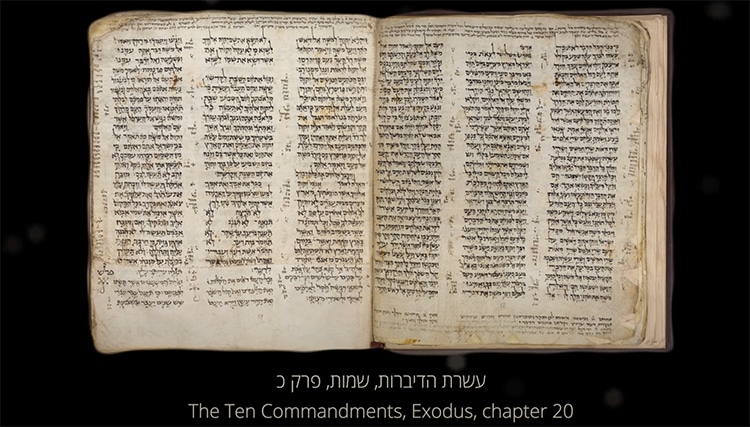
The Ten Commandments, as written 1,100 years ago. (Photo: screenshot via ANU – Museum of the Jewish People)
At auction with Sotheby's, the manuscript fetched an incredible $38 million. In the future, it will be displayed at the ANU Museum of the Jewish People in Tel Aviv, where it was donated by its purchaser.
h/t: [NPR]
Related Articles:
Buried Box of Photos Reveal Jewish Man’s Perspective from the Lodz Ghetto in WWII
How Illuminated Manuscripts Were Created During the Middle Ages
Shining a Light on the Beautiful Illuminated Manuscripts of the Medieval Period











































































